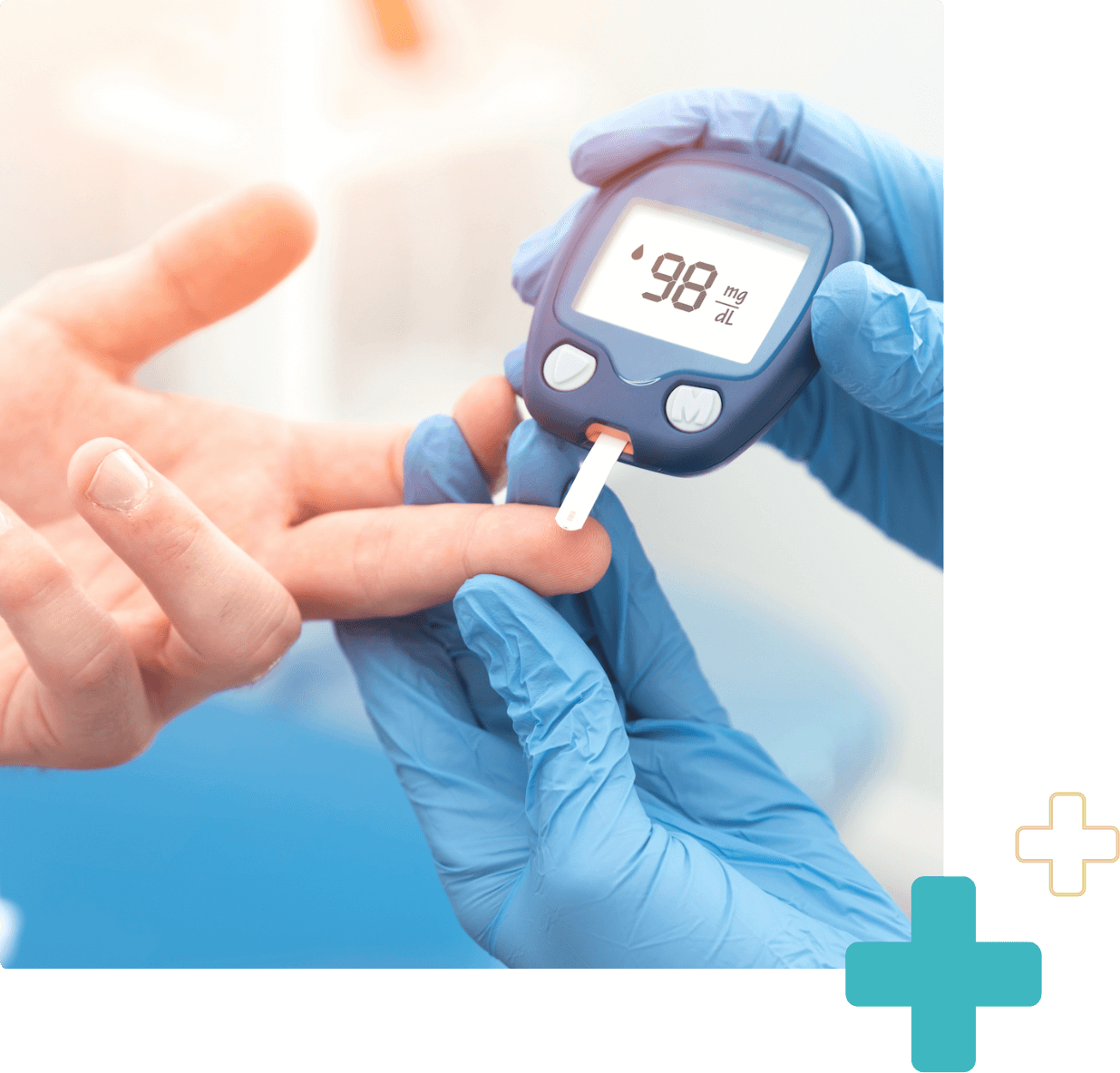Diabetes Diagnosis and Education
Diabetes diagnosis and education management is all about helping a patient diagnosed with diabetes gain the knowledge, skill, and ability necessary for diabetes self-care. This process is very personal and involves the physician understanding the needs, goals, and life experiences of the person with diabetes.

Overview
At Hillcroft Physicians, we support informed decision-making, self-care behaviors, problem-solving and constant collaboration with the health care team to improve outcomes, health status, and quality of life. Diabetes is a complex disease that presents in many forms and requires daily self-management. Good self-care includes making healthy food choices, staying physically active, monitoring blood sugar, and taking medications as prescribed. Hillcroft Physicians work with the patient as part of a care team to identify symptoms, diagnose risks, and treat patients for problems that could result from diabetes. Patients with diabetes need to talk regularly with their doctors to problem solve, reduce risks for complications and cope with lifestyle changes.
Diabetes Education Services
Hillcroft Physicians work with patients at four critical times:
- At diagnosis
- Annually (and/or when not meeting treatment targets)
- When Symptoms Indicating Complicating Factors Develop
- When Transitions in Life and Care Occur
Through good self-management, people with diabetes can improve their quality of life and reduce the risk of developing complications and resulting problems. When patients are part of a diabetes management team, it can also help prevent hospital admissions or lessen time and trauma associated with hospital stays.

Health Tips & Info
What are the symptoms of Type 2 diabetes?
Type 2 diabetes always requires a medical diagnosis. Symptoms include increased thirst, frequent urination, hunger, fatigue, and blurred vision. In some cases, there may be no symptoms. Patients also may complain of excessive hunger, excessive thirst, or fatigue. Excessive weight gain or loss can also be experienced along with frequent urination or poor wound healing.
What is the best way to manage Type 2 diabetes?
Type 2 diabetes can sometimes initially be managed through lifestyle modification, including a healthy diet, regular exercise, and monitoring your blood glucose levels. Exercising helps the insulin work more effectively, lowers your blood pressure, and reduces the risk of heart disease.
